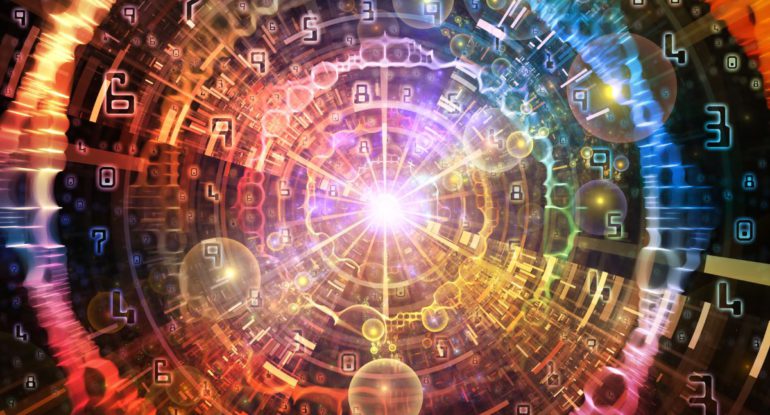NFTs And Identity: How Digital Collectibles Are Reshaping How We Define Ourselves In The Digital World

As more of our lives are lived online, the question of how we define ourselves in the digital world has become increasingly important. For many people, their online identity is just as important, if not more so, than their offline identity. With the rise of non-fungible tokens (NFTs), we are seeing a new way of expressing and defining ourselves in the digital realm.
What are NFTs?
NFTs are unique digital assets that are stored on a blockchain. They are often used to represent art, music, videos, and other digital content. Each NFT is one-of-a-kind and cannot be replicated or duplicated. This means that the owner of an NFT can prove ownership of the original digital asset that it represents.
How are NFTs Reshaping Identity?
Our identity is often tied to the content we create and share in the digital world. NFTs allow us to own and control that content in a way that was not previously possible. For example, an artist can create digital artwork and sell it as an NFT. The buyer of the NFT then owns the original artwork, which they can display and share as they wish. On the other hand, the artist retains the copyright to the artwork and can continue to profit from it if it is sold in the future.
NFTs are also being used to represent identity in other ways. For example, some people create NFTs representing their social media presence or online persona. These NFTs can be bought and sold like any other NFT, but they also represent the owner’s identity in the digital world. They can be used to authenticate online accounts or to express oneself in the virtual realm.
Also, read – The Benefits Of NFTs For Digital Creators: A Comprehensive Guide
The top 5 ways how digital collectibles, specifically NFTs, are reshaping the way we define ourselves in the digital world:
- Ownership and Control: NFTs allow us to own and control our digital content in a way that was not previously possible. With an NFT, we can prove ownership of a unique digital asset and control how it is shared and used.
- Authenticity and Verification: NFTs can be used to authenticate and verify our online identities across different platforms. For example, a social media account could be linked to an NFT, which would serve as proof of the account owner’s identity.
- Self-Expression: NFTs provide a new way of expressing ourselves in the digital world. They can be used to represent our interests, values, and beliefs, and provide a means of self-expression that is unique and personal.
- Monetization: NFTs provide a new way of monetizing our digital presence. They can be sold to collectors or fans, providing a new source of revenue for content creators, influencers, and other online personalities.
- Community and Connection: NFTs can be used to build communities and connect with like-minded individuals in the digital world. Collectors and fans can come together with a shared interest or passion, creating a sense of community beyond the digital realm.
What are the Benefits of Using NFTs for Identity?
1/5 🧵
One of the key benefits of using NFTs for personal identification is that they provide a more efficient and secure way to prove our identity.
Traditional forms of identification, such as birth certificates, drivers licenses, and passports, can be lost, stolen, or forged
— Prince Leo 👑 (@senorwhale) December 26, 2022
One of the biggest benefits of using NFTs for identity is that they provide a way for people to own and control their digital content. This is important in a world where much of our personal and professional lives are conducted online. NFTs allow us to prove ownership of our digital assets and ensure that we are compensated for their use.
NFTs also provide a way for people to express themselves and define their identity in the digital world. They can be used to represent personal values, interests, and beliefs. They can also be used to establish an online presence or to authenticate one’s identity across different platforms.
Finally, NFTs can provide a way for people to monetize their online presence. For example, a social media influencer could create an NFT that represents their social media profile. The NFT could then be sold to a fan or collector, providing the influencer with a new source of revenue.
As the world becomes increasingly digital and we spend a lot of our time on social media, our digital identity plays a big role in our lives 🧑💻
🦹♂️ @stealthmetawear brings the concept of digital identity to life through a series of unique fashion #NFTs
👠 Each clothing piece… pic.twitter.com/ZeZ1d8RCqx
— CrypTina💜 (@1CrypTina) April 21, 2023
Conclusion
NFTs are not just a trend, but a paradigm shift in the way we interact with valuable digital assets. By providing a unique and immutable way of proving ownership and authenticity, NFTs are creating new opportunities for content creators, artists, and entrepreneurs to monetize their digital creations. This has the potential to completely transform how we consume and value digital content, and may even lead to new markets and industries.
At the same time, NFTs are also raising important questions about digital privacy, security, and ownership. As we continue to embrace these new technologies, we must also ensure that they are being used ethically and responsibly and that the rights and interests of users are being protected.
NFTs are reshaping how we define ourselves in the digital world, opening up new possibilities for self-expression, creativity, and commerce. However, as we continue to explore the potential of these technologies, it is important to remain vigilant and thoughtful about their impact on our personal and collective identities.



























































